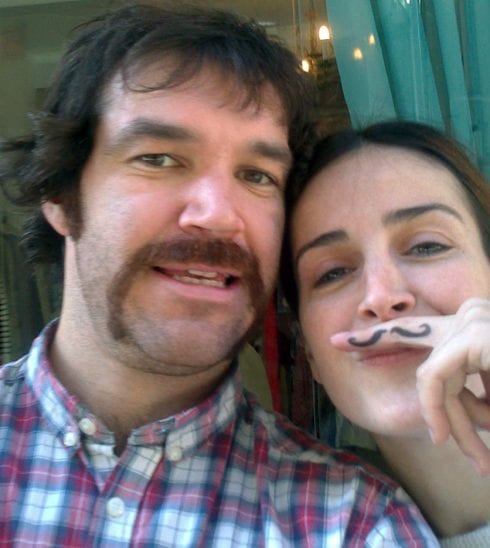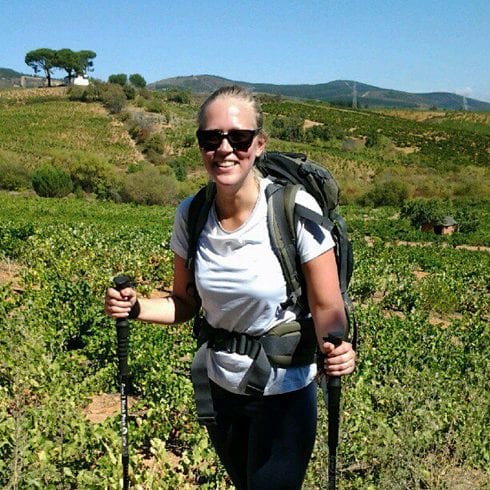“LANGUAGE is wine upon the lips” said Virginia Woolf.
Well, my language ability does certainly increase with a glass of wine, but personally I think learning languages is one bipolar rollercoaster. One day your language abilities will make you feel on top of the world. The next day someone will rip off the metaphorical band aid that held together your badly healing linguistic wound from the last embarrassing language blunder, by answering in English when you order a drink in a bar, because it’s just that obvious.
One of my problems is I first learnt Spanish in Mexico. Accents and dialects are so varied amongst all languages, it is sometimes a wonder how people can even put a name to a language without adding this goading note: “although you will find some vital incomprehensible differences, so enjoy that, the natives will.”
Language is a rich tapestry of culture, developing and living, as they say. Or is it just a nightmare labyrinth of upset, lost in a word of anxious twists and tuns, your finger tips brushing the almighty golden cup of bilingualism in the centre, but never quite grasping the handles.
Here in Pamplona, the Spanish spoken does not have many regional disturbances, though of course the inevitable and wonderful infiltration of the Basque language does add an edge. I have yet to find a variety of Spanish that uses the dreaded subjunctive properly. For any English speaker, learning the intuitive reasons for the subjunctive is a minefield of constant frustration. In Mexico, they used the subjunctive all the time, and never employed the future tense. I wondered if that could have something to do with their way of thinking, a cultural intrusion? In the northeast region of Spain they do not use it as I was taught either, the conditional is ‘badly’ employed instead. Heaven forbid!
When I first learnt Spanish in Mexico, I would have a daily conversation with a large lady who had an incredible maternal power over everyone she spoke to. I felt a strong need to please her and accept her wonderful cooking. Each morning, she’d call out to me from behind her iron gate and I’d string a sentence together, adding something new every day. After six months, I was feeling pretty proud of myself for having learnt so much. However, on one fateful day my plucky confidence was ripped from beneath me as a hilarious blunder left me licking new linguistic wounds for a long while. This is how learning languages often works, sigh.
One clear morning, the infinite blue sky of Mexico stretched over the colourful row of houses I lived in. The little flat I rented above a family was bright orange. The lady, who I affectionately, and obligatorily, called Abuela (grandmother) was by her iron gate again, in front of her deep blue house with a corrugated rooftop.
As I approached, she called out “Katie” (pronounced ‘katty’)
“Como andas?”
Como what? I froze. That is all it took. One little phrase, and I’m plummeting head first into linguistic hell. A glazed look passed over my face as my brain hurried to process what had been said. It is literally translated as “how do you walk?”
One of the many questioned that mutely shot through my mind and filled the silence stretching between us (something that is even less acceptable in non-stop chattering Mexican culture, than for the awkward reasons we dislike it as British people) was, am I limping? Had I momentarily forgotten about that lifelong gait I’ve grown up with? Followed by an internal criticism about how I do take overly long strides.
I replied with what translates as “I don’t know. I’m walking like I normally do, I think.” The confusion in Abuela’s eyes said it all. I panicked. My cheeks burnt red hot under her disappointed look. She contemplated my stupid remark for longer than I felt comfortable with, so I bid her good day and went to work, thoroughly confused. I later explained this to my friend who rolled about laughing. It just means “how are you?” After six months, I thought I knew it all.
I have now come to terms with the fact this will never be so. So why do we learn foreign languages? To quote Charlemagne, that gutsy King of Francs and Father of Europe, “To have another language is to possess a second soul.” I could do with another one of those, please.
I don’t even speak English properly. (Who does?) Idioms are my worst stumble. I feel increasing guilt as my students hang on my every native word, repeating with trusting wide eyes “it was the piece of grass that broke the camel’s back” or “I have quite a lot of fish to fry today.”
If I could only master “hasta luego” like the Pamplonians, I’d be eternally happy.
“ahtalegooo” … “ahslegoe” … “ahlaweygo”
- There are hundreds of languages in the world, but a smile speaks them all. Everyone has a similar language anecdote. Share yours below, make a comment, we can laugh (and cry) together. It’s therapeutic. Trust me. I have a friend who kept up a charade of being pregnant with the family next door just to avoid an ’embarazada’ admission of language incompetence. Hey, I enjoyed the double portions of Spanish cooking, I mean, she did…
Click here to read more News from The Olive Press.






Very entertaining and oh so true! You just have to laugh along with them, then pick yourself up, dust yourself off and get back on your linguistic “horse”. Above all, don’t get disheartened.